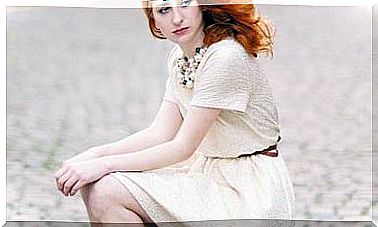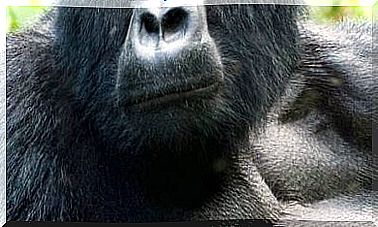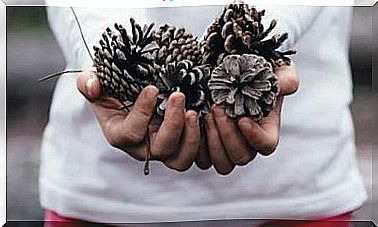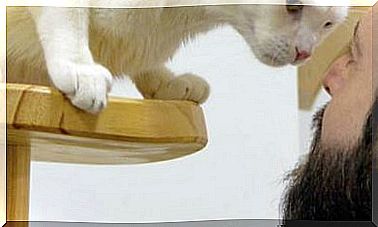How To Face A Duel Without Running Away
Death is a natural event that we must learn to accept, because only in this way can we accept the loss and give way to the new life that awaits us.
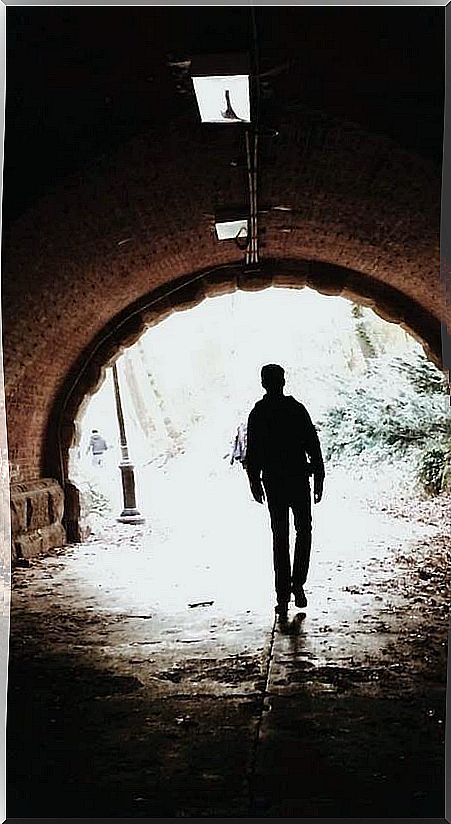
In the West, death has become taboo and funeral rites are performed more and more aseptically, so that relatives have little contact with the deceased.
Traditionally, the ritual took place at home and the children attended the wake, which lasted for days, quite naturally. This gave them a closeness to death, integrated into daily life as one more element of becoming.
The current rejection of everything that has to do with death has caused an increase in fear of death, since it has become almost unknown. This also makes it more difficult for us to say goodbye to loved ones.
The mustard lesson
A story that began to become popular around the fifth century illustrates how Siddhartha Gautama approached this issue.
This fable does not diminish sadness, but it allows us to share. The person who has suffered a loss cannot be expected to be freed from sadness and pain immediately, since assimilating the death of a loved one takes time.
A woman named Kisa Gotami once went to see the Buddha, very upset by the death of her son. With the child in her arms, the mother implored him to bring him back to life.
“Okay,” replied the enlightened one, “but first you must bring me a mustard seed.”
“A mustard seed!” How easy!
“But you must take it from a house where no one has died.”
Kisa Gotami ran out to ask for a mustard seed and called house after house. But when asking if someone had died in the house, the answer was always:
-Unfortunately if. The dead are many, and the living few.
The woman was totally desperate and wondering where she could find the seed she needed. He finally got the message: death comes to everyone. So he went to meet the Buddha and put his son on the ground, saying:
– Now I know that I am not alone in this immense duel. Death comes to everyone.
The 5 stages of grief
The psychiatrist Elisabeth Kübler-Ross fixed in her 1969 book On death and dying , the five stages of grief, whether it is the death of a relative or the diagnosis in the person himself from a terminal illness:
- Denial. The first reaction of the individual is defensive and incredulous. He says to himself: “This can’t be happening to me.”
- Go to. The second phase is one of rebellion and outrage: “Why does this have to happen to me? It’s not fair!”
- Negotiation. It occurs especially when death has not yet arrived, in terminally ill patients. The person hopes to delay the end and thinks things like, “God, I just need a little more time to…”
- Depression. Once the inevitable fact is accepted, the person surrenders to sadness and asks himself questions about the ultimate meaning of life: “Why live if then you have to die?” According to Kübler-Ross, it is not necessary to try to cheer the person who is in this phase, who must be respected.
- Acceptance. The individual recognizes that “since there is no remedy, I must assume it.” It is a phase of peace in which the fight against death is stopped and the pain subsides.
The Roman thinker Marcus Aurelius wrote:
“We must not fear death, but never having begun to live”
The fear of death often masks a fear of life : it is known that in reality the juice is not being extracted from existence.
Most people do, in fact, go through different “deaths” throughout their lives. Someone who suffers a layoff, divorce or financial ruin is suddenly in a totally different place where they must integrate the loss and learn to live again.
The problem is when we try to enter the next stage without having “let go” of the previous one, since then we will continue anchored to the past.
Theory U: if you don’t let go, you don’t let come
The so-called Theory U , by Otto Scharmer (Ed. Eleftheria) deals with this question. Many people do not succeed in making anything really new happen in their life – finding their partner, discovering another vocation – because they analyze their life in terms of the past. They filter everything that happens to them through what they have already lived, keeping the same preconceptions.
According to Scharmer, until we let go of the past, the gifts of the future will not arrive. In “Theory U” this is synthesized with two sentences in English: without Let it go (“let it go”) there can be no Let it come (“let it come”).
Whatever our grief, once we have understood and honored the past, we must leave it there to open doors to the new. If we do so, we will allow other experiences to come that will give value to each day of our lives.
The Four Commandments by Elisabeth Kübler-Ross
- Live in such a way that when you look back, you will not regret having wasted your existence.
- Live in such a way that you do not regret the things you have done or wish you had acted differently.
- Live sincerely and fully.
- It lives.
After the loss
Metaphysics doctor Anji Carmelo points out that, after completing the mourning, it is time to honor the deceased through remembrance and personal renewal, so that we can integrate the best of who we just lost.
- It is important to seek moments of harmony and peace, which can be fostered through encounters with nature, music, reading and relaxation.
- The next step is the conversion of internal well-being into a real external manifestation and the improvement of daily life, doing something good for oneself.
- It is then worth reconnecting with loved ones, rediscovering small pleasures and allowing yourself to enjoy them.
- And finally, analyze and value the experiences and see how enriched and strengthened one is, knowing that no one or nothing will be able to separate us from the family member or friend so dear, since it is carried within the heart in peace and harmony.
